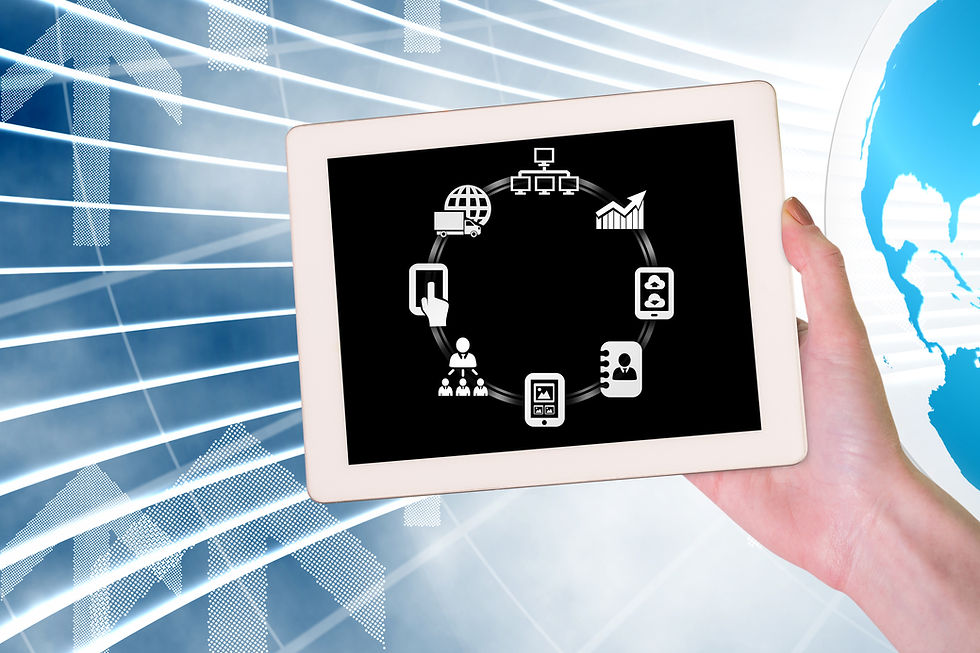AI and Automation Shaping Patient Care in 2025
- GetOnCrm Solutions
- Jun 20
- 2 min read
In 2025, the healthcare industry is seeing a strategic shift—from manual, labor-intensive systems to AI-powered healthcare workflows and intelligent automation. As patient demands rise and staffing resources remain tight, hospitals and clinics are embracing healthcare automation in 2025 to improve care delivery, streamline operations, and create connected experiences.
The New Healthcare Standard: Unified, Automated, Intelligent
Today’s leading hospitals are investing in platforms like Salesforce Health Cloud for patient care to centralize medical data, optimize team workflows, and automate communication with patients. These tools are not only reducing delays and costs but also enabling more precise, proactive care.
Key capabilities of Salesforce Health Cloud in healthcare automation:
Document automation for healthcare: Digitizes forms, intake processes, and discharge summaries
AI in patient engagement tools: Delivers customized outreach and follow-ups
Healthcare claims automation: Speeds up billing and insurance workflows
Secure, HIPAA-compliant healthcare CRM systems
A full 360-degree patient view across departments and providers
Global Success in Action
A leading healthcare provider implemented Salesforce for healthcare integration in collaboration with GetOnCRM Solutions. They streamlined fragmented data, automated lead management, and created personalized healthcare marketing campaigns using Salesforce Marketing Cloud.
Results achieved:
30% more customized interactions
25% higher email engagement
40% improvement in lead processing and conversion
This proves the impact of Salesforce CRM in healthcare automation—not just as a technology upgrade, but as a strategic asset.
From Clinics to Clouds: Automation Across Every Layer
In 2025, clinical automation solutions are redefining care. Through the integration of AI in hospital workflows, providers can manage complex cases with greater precision and less effort.
Remote patient monitoring using IoT in healthcare tracks vitals and flags anomalies
AI-powered triage automation prioritizes cases based on urgency
GenAI tools in healthcare documentation act as AI scribes, reducing paperwork for physicians
Whether it’s assisting doctors or helping patients manage chronic conditions, these innovations are becoming essential to efficient, high-quality care.
Streamlining Hospital Operations with Automation
On the administrative front, robotic process automation in healthcare operations is reducing repetitive work and freeing up valuable time. Hospitals are deploying bots to manage:
Insurance processing
Staff scheduling
Appointment management
Claims and compliance reporting
With RPA in hospital administration, some institutions have reduced claim processing times by over 50%.
Salesforce + Agentforce: Smarter, Safer, Faster
Agentforce, built by GetOnCRM on the Salesforce platform, is a leading example of AI agents for healthcare workflow automation. Integrated with Einstein GPT, Agentforce helps healthcare teams:
Predict patient risks using wearables and history
Automate communication across departments
Trigger alerts for urgent care needs
This solution reflects the future of digital transformation in healthcare, where real-time data and automation converge to support better outcomes.
Looking Ahead: Trends Defining 2025–2027
The future of healthcare isn’t just about new tech—it’s about using it with purpose. Key trends in patient care automation between 2025 and 2027 include:
Voice AI for diagnostics and documentation
Hyper-personalized patient engagement using CRM data
Federated learning in healthcare data privacy models
Digital twin simulations for treatment planning
GenAI tools outperform traditional RPA in care delivery
These shifts will create a more agile, responsive, and patient-first healthcare ecosystem.







Commentaires